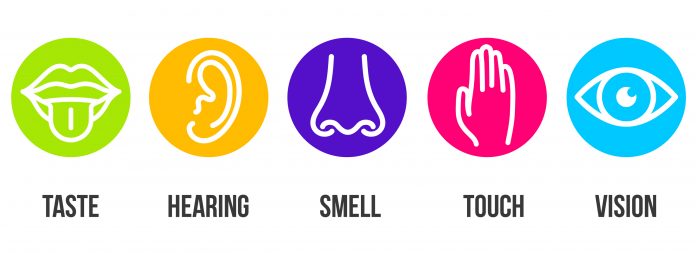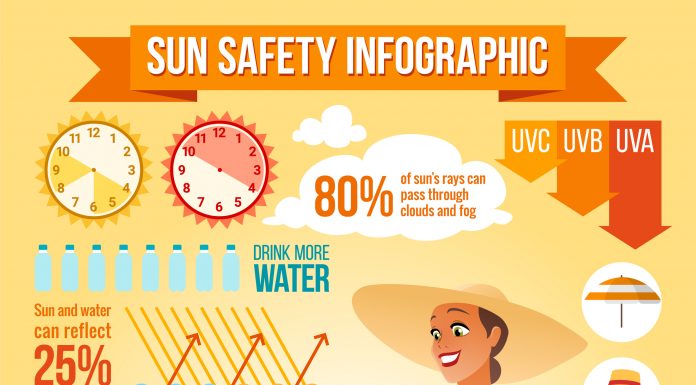We are connected to the world by our five senses. Sight, touch, taste, smell and hearing. For most of our life we take them for granted–until, that is, we suddenly (or more likely, gradually), start losing them– at least the effectiveness or intensity of some.
For me, the first sense to “go” happened when I was a young teen. I could no longer see distances clearly and I knew in a very dramatic fashion when the school bus passed me by because identifying letters appeared blurred. It turned out I needed eyeglasses (I was myopic, aka nearsighted).
I still am myopic, but fortunately my eyeglasses corrected inexplicably egg shaped-developing eyeballs that causes light to misfocus on the retina. There appears to be no “cure.” I’m lucky, though. At 72 the only glasses I wear for both distances and reading are NOT bifocals (and my prescription hasn’t changed in years).
I knew, also at an early age, that I couldn’t hear really well out of my right ear. I’d had tonsillitus and some damage had occurred.
Adenoids were removed (not exactly sure why). I was also diagnosed with congenitally narrow ear canals and wax would tend to build up. When I got a bacterial infection from lake water while swimming–and didn’t seek treatment soon enough–things got considerably worse.
Despite all this I have spent my adult life NOT feeling particularly disabled–and my peers never saw me as such. (Maybe nerdy looking, though). And neither vision nor hearing issues ever restricted my career trajectory as a journalist, publisher and book writer (and most recently, b&b owner).
But recently the hearing became a demonstrable problem. I married a Canadian some years before and many Canadians say “eh?” regularly. THAT expression was starting to regularly double as my response to a missed conversation…(I’ve had fun with it, though).
Gradual but significant hearing loss in my right ear has not been kindly received by my wife who, at 69, truly has superior hearing at an age when most are experiencing declines. She can literally hear the pin drop from miles away. She has been unwilling to compensate for my disability (such as by NOT talking through walls, or by helpfully raising her voice slightly). And while I may seem to be in denial about my disability at times, it’s also true that there are many people with good hearing (or sight, or smell etc.) who act like YOU should simply have it too. (And many do mumble, slur words or talk from great distances and expect you to understand them perfectly well).
(The previous president of our couples dance club was an example of someone who spoke very softly in front of his mostly over 60 audience and I’m sure I wasn’t the only one who couldn’t hear him well. But did he try to project more? No, never. When my wife and I became co-presidents–and I was charged with making the announcements etc., I certainly DID project–and nobody ever told me to “tone it down.”)
Ok, so, we now come to the part about getting a hearing examination, and hearing aids. I was not opposed to either but not exactly enthusiastic, as many aren’t (see survey below).. The prices for aids were all over the map, from hundreds to thousands of dollars. Ads for them in places like AARP Bulletin were ubiquitous. The industry is obviously flourishing. So I went to the web to try to find out what the differences were, and there were some sites that compared models and prices, thankfully. But I was never convinced that the high end devices were all that better than simple, and cheaper, “amplifier” devices that just turn up the volume on sounds, say, in a room. (The high end ones emphasized that you could hear voices more distinctly).
I would have gone to an audiologist and was referred to one by my primary physician who actually misconstrued what I wanted and sent me to the wrong kind (excuses, excuses). Plus my insurance was in limbo at the time, and no one was taking it (long story–I suggest avoiding Medicare Advantage (MA) plans if you want to keep your own doctor and be certain of your care in an emergency–a subject I could write an entire separate article about. (I’m back with the Blues)..
So when I saw an ad a $100 hearing aid on Amazon that had tons of happy customers. I sent for it rather than continue to “hear” more proddings from my wife. One evening I read all the detailed instructions (this was one whose batteries are rechargeable, a very good thing) and fiddled with the fittings to ensure the one aid was placed firmly in my right ear, and that the high pitched shrill sounds you get if NOT placed properly were complelety gone. Mission accomplished after several tries.
Immediately I did hear the tv better and all sounds in the room. (There was some echoing). I didn’t like how it felt on my ear, and how easily it could have fallen off. But it was a definite improvement.
But I haven’t worn it since. I was due for a visit to my physician to have my ears cleaned out (of earwax) again–I call it a “blow out”. They force a stream of warm water into your ears with a syringe. (One time I did this my hearing got worse, as the moisture got trapped inside my ear canals for weeks). But this time my hearing remarkably improved–but, of course, never quite enough for my super-hearing wife!
One thing she tells me is that I need to hear well if she ever gets into trouble around the house. And it HAS happened. A fall, a burn, even a heart attack can occur at our ages. So far, I’ve HEARD her high pitched shrieks and been there Johnny on the spot.
(High pitches are more easly heard than low pitches). I’m not at all worried about those. The only real trouble I continue to have is when people talk real softly in a crowded room. And the music at concerts is often TOO loud, which is probably one reason why my generation HAS hearing problems. (I never attended that many rock concerts, actually, except famous Woodstock–whose 50th anniversary is this August).
If am stubborn it is because, well, I am. So is my wife. Being mutually stubborn is, I suppose, one of the attributes of our succesful marriage–and things generally get done because of it. (Like readjusting the internet connected RING thing the other night when the AT&T guy insisted we needed a new router box–with triple the number of code letter/numbers for all our devices. Go figure).
I admit I can’t hear really well but also that I may never be completely “cured.” I may take more actions to remedy it in the future. Maybe I need a cochlear implant. But having a wife who can hear conversations through walls (even when she shoudn’t be listening!) is an exceedingly nice thing to have, though.
And probably far less costly.
The other day I was at the home of Birgitta Tegelberg, a woman my wife and I regularly play tennis with. She has had bad hearing for 30 years, she says, and estimates she’s spent $500,000 lifetime on hearing aids. When I told her I was writing this article, she was all “ears.” (bad joke). She was about to get back a pair of aids she had had fixed and her dissatisfaction with hearing aid “specialists” was palpable. She even accused many of fraud and she’d been to quite a few over the years.. My wife and I love this woman, and can feel her pain. It’s very apparent that she can’t hear well, but as a friend we don’t make her feel bad about it, and just speak louder, and closer. Note to criticizers: a person’s disability does not define them.
My “problem” is nothing like hers and I’m grateful it isn’t. I can hear the sound in movies. One to one conversation is generally no problem. Hearing the tv is difficult, but then my wife keeps the sound low when guests are in the house.
A letter writer in AARP Bulletin, Everett Ratzlaff of Florida, wrote recently, “I’m on my fourth set of hearing aids and I still cannot hear conversations on television or the movies! My wife has excellent hearing but we both sit with the tv so loud it reaches the neighbors.” He goes on to blame the media and Hollywood that needs to get “read human conversation” back “where it can be clearly understood.”
At least his wife is willing to tolerate a high volume tv…
Clearly, hearing loss is not something that can be solved easily–or always at all, and certainly not inexpensively if it can. I think I’ve made some points about how others need to be more sympathetic, and “compensatory,” for those who are losing the quality of some of their senses. (For example, if the sense was Taste, you wouldn’t normally criticize someone who was not gaga about the flavor of your casserole.)
The June, 2019 issue of Consumer Reports has an excellent piece, “Good Advice about Hearing Loss.” I wrote most of this before I got the issue, I must admit. Some statistics were revealing: people RESIST getting hearing aids because of cost (42%); because their hearing hasn’t even been tested (26%); embarrasment (18%), physical discomfort (12%), and a friend or family’s displeasure at using one (10%). All of which resonate with me and are often quite valid criticisms or concerns..
The article also discussed the motivational factors in GETTING an aid: hearing test showed I needed one (75%), others complaining about my not hearing well (53%) and my tiring of asking others to repeat themselves (50%). The article went on to rate the 16 best hearing aids. (One by Costco/Kirkland was tops, especially Value.)
This is a big subject and I may have only scratched the surface here. Personally, as a writer I spend a lot of time in chosen solitude, and ANY sound can be a distraction. (Another excuse, I know.) But I know being somewhat hard of hearing won’t lead to divorce, and I don’t have a job where perfect hearing is essential.
But check with me in a few months and I may have changed my tune (and maybe will even be able to hear it).























